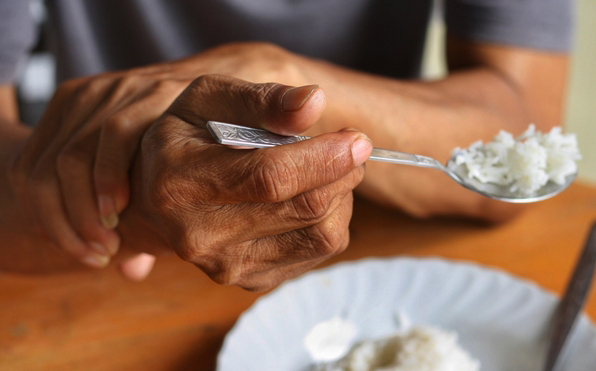How diabetes affects the liver
- Posted on 17/11/2023 10:20
- Film
- By abelozih@sante-education.tg

Extract from the article: Diabetes is a problem with the regulation of sugar in the body, a dysfunction that leads to a disturbance in the distribution of fats by the liver, which can lead to liver overload or steatosis. Mathieu Kponou Tobossi, an expert in phyto-hepatology,
Diabetes
is a problem with the regulation of sugar in the body, a dysfunction that leads
to a disturbance in the distribution of fats by the liver, which can lead to
liver overload or steatosis. Mathieu Kponou Tobossi, an expert in
phyto-hepatology, shows that the accumulation of fat in the liver can lead to
inflammation that causes lesions, leaving progressive scars (fibrosis), the
most serious and dreaded of which is cirrhosis of the liver. This in turn leads
to other serious consequences, such as digestive haemorrhage and liver cancer.
The
relationship between diabetes and liver health is bidirectional. « While
diabetes can have a negative impact on the liver, liver dysfunction can also
contribute to the development and progression of diabetes.The liver plays a
crucial role in regulating blood sugar levels by producing and storing
glucose.When the liver is compromised, it may not be able to regulate blood
sugar levels properly, leading to increased levels and poorer control of
diabetes », says Mathieu Kponou Tobossi, an expert in
phyto-hepatology.
Professor
Laurent Castera, a hepatologist at Beaujon Hospital in Clichy (France), shows
that type 2 diabetics often have metabolic syndrome factors and therefore
accumulate risk factors. Secondly, steatosis is the hepatic manifestation of
metabolic syndrome, the common denominator of which is insulin resistance. This
leads to the accumulation of fatty acids in the liver and hence to steatosis.
One of the main ways diabetes affects the liver is by causing a condition called non-alcoholic fatty liver disease (NAFLD). Mathieu Tobossi, Expert in Phyto-hepatology explains that « NAFLD is characterised by the accumulation of excessive fat in the liver, leading to inflammation and potential damage to the liver. Studies suggest that people with diabetes are more likely to develop NAFLD due to insulin resistance and increased blood sugar levels ».
In fact, studies have shown that up to 70% of people with type 2 diabetes have NAFLD.What's more, diabetes can also contribute to the progression of NAFLD to a more serious condition called non-alcoholic steatohepatitis (NASH). « NASH is characterised by inflammation and damage to the liver, which can eventually lead to fibrosis, cirrhosis and even liver cancer.The exact mechanisms of this progression are not yet fully understood, but it is accepted that insulin resistance, oxidative stress and inflammation play a significant role », explains Mathieu Tobossi.
In addition, diabetes
can affect liver health by increasing the risk of developing cirrhosis of the
liver, a condition characterised by irreversible scarring of the liver.
Diabetes can also worsen the effects of viral hepatitis, leading to more
serious liver damage.
William
O.




